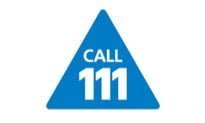Further call for halt on NHS 111
- 16 April 2013

NHS Clinical Commissioners has called for a halt to the NHS 111 roll-out, saying there is a pressing need for issues to be resolved.
The new urgent care telephone triage service, staffed primarily by non-clinical staff, was due to go live across England by April, but several areas have seen delays because of operational difficulties.
There have also been complaints from some areas where the service has gone live that it is failing to cope with call volumes and putting more pressure on ambulance services.
NHS Clinical Commissioners, a body formed by the NHS Alliance, NAPC and NHS Confederation to represent the NHS’ new commissioning organisations, said: “It is clearly not acceptable that patients may be put at risk and that their calls may not be answered.
“There is an urgent need for issues surrounding 111 to be resolved. NHS England must call a halt to the further roll-out of NHS 111 until each region has been rigorously tested and assurances can be given that the system is resilient and patients will receive appropriate advice.”
The NHS 111 service has been dogged by confusion and uncertainty. Former health secretary Andrew Lansley abruptly announced that it would be introduced across the country, after visiting a pilot site.
There as initially confusion about whether it would run alongside NHS Direct and other digital services, or replace them.
Eventually, the Department of Health decided it should replace them and be locally commissioned, with NHS Direct as one of a number of potential providers. The DH also set the deadline for the roll-out that has now been missed.
However, opposition has grown as some big cities have adopted the service. EHI reported last month that in Manchester the system went into “total meltdown” on its first night of operation.
In parts of South London, a series of delays to the go-live has left GPs directing patient calls because the previous service contract ended in February.
Sir David Nicholson admitted at the NHS England board meeting last Friday that there had been "some difficulties" in people being able to get through to the NHS 111 service.
“That’s clearly unacceptable and we’ve let some of our patients down,” he told the meeting. “We need to think really carefully about the lessons we can learn and also more importantly about getting the service up and running.”
Contingency services are in place in many areas of the country, where patients are advised to use NHS Direct’s 0845 health advice line until the problems have been dealt with.
Commenting on the 111 roll-out, Dr Steve Kell, co-chair of the NHS Clinical Commissioners leadership group, said:“A single national number, NHS 111, may be an appropriate way for people to access urgent care.
“However, local commissioners must be given the ability for ensuring that when the system is accessed the public in their area are provided with an appropriate localised solution.”
Last month the British Medical Association also called for on the government to delay the launch of NHS 111, claiming patient safety was being sacrificed for a political deadline.
There are 44 NHS 111 areas and of these, 12 have awarded contracts to Harmoni, 11 to NHS Direct and 11 to ambulance services.




